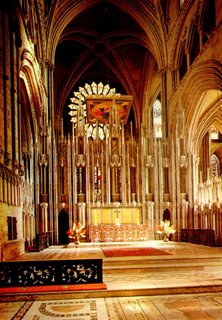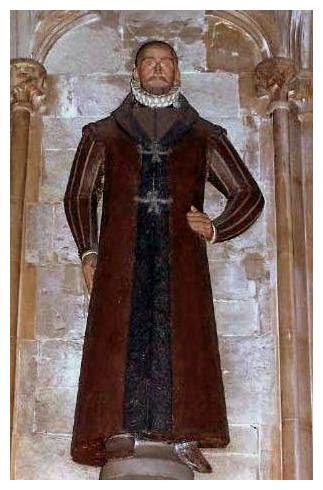Blessed THOMAS PERCY, Layman, 1572
Biography
THE first act of B. Thomas with his companions and followers on entering Durham was to seize the Cathedral and purge it of every heretical token. The Communion table was broken up, the Protestant Bible and Book of Common Prayer were burnt. The Catholic revival spread far and wide with marvelous speed.

"In the same day wherein the heathen had defiled it was it dedicated anew with canticles and harps and lutes and cymbals. And all the people fell upon their faces and adored and blessed up to Heaven Him that had prospered them." 1 MACH. iv. 54, 55.
We even know the identity of the organist at these Masses, one John Brimley.
His gravestone in the Galilee Chapel says:
John Brimleis body here doth li
Who praysed God with hand and voice
By musickes heavenlie harmonie
Dull myndes he maid in God rejoice
His soul into the heavens is lyft
To prayse him stil that gave the Gyft
Obiit Ao.Dni.1576 Octo.13.
























